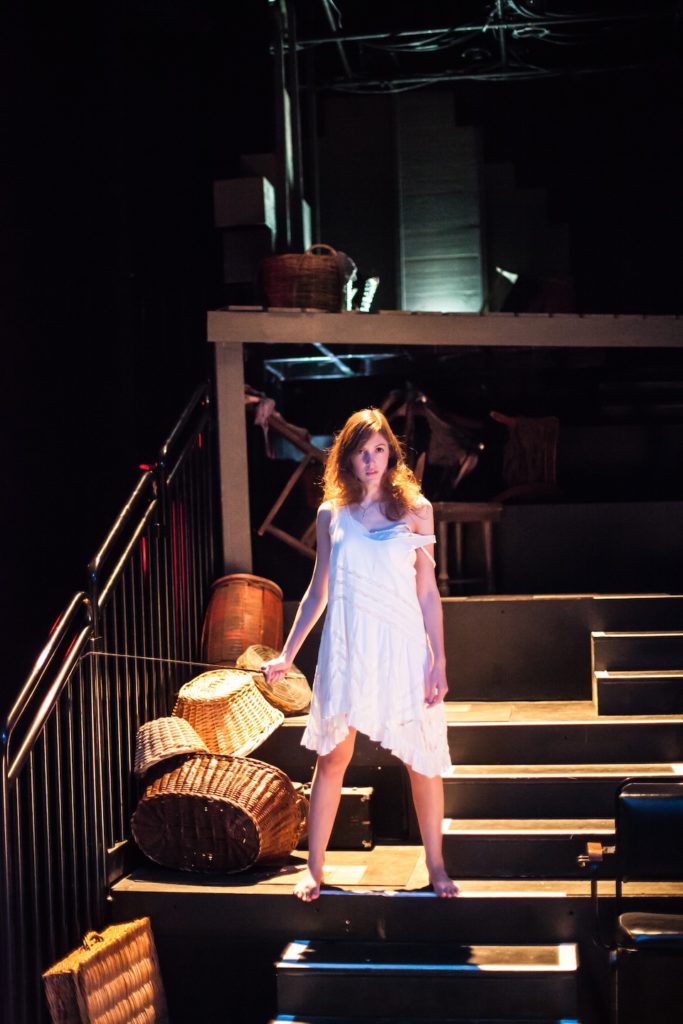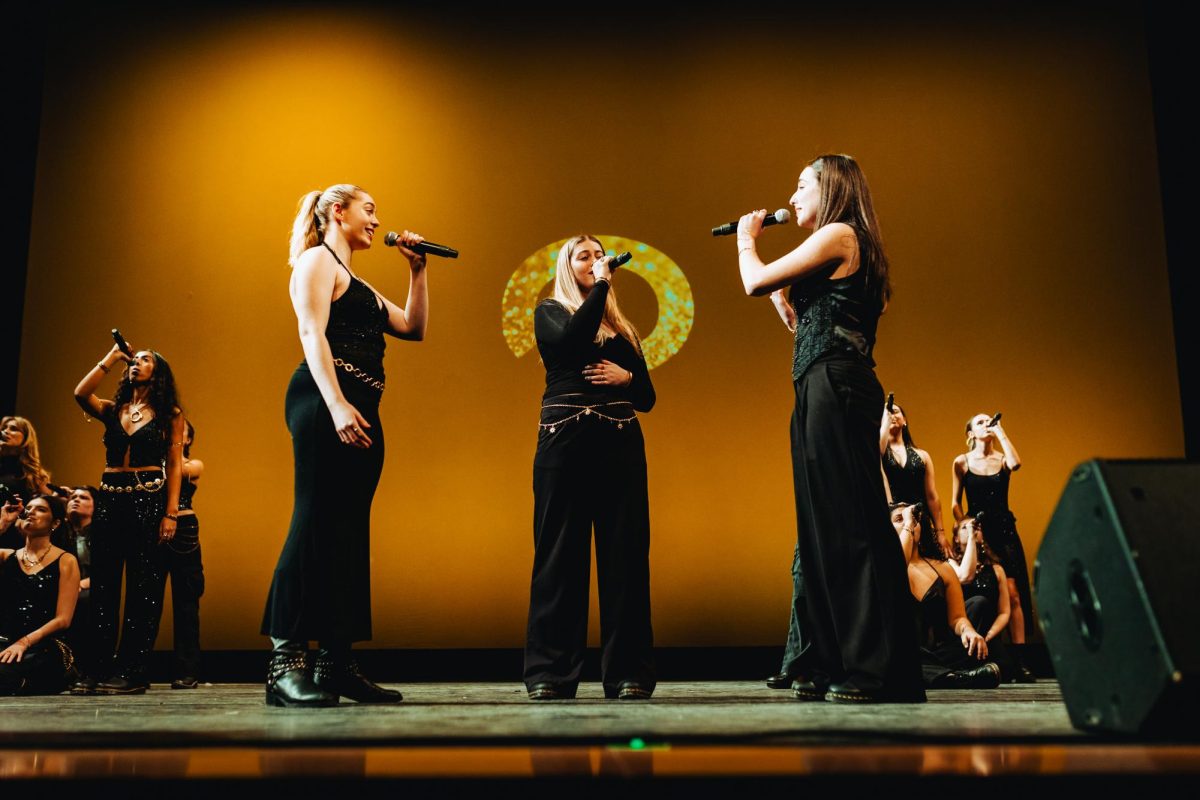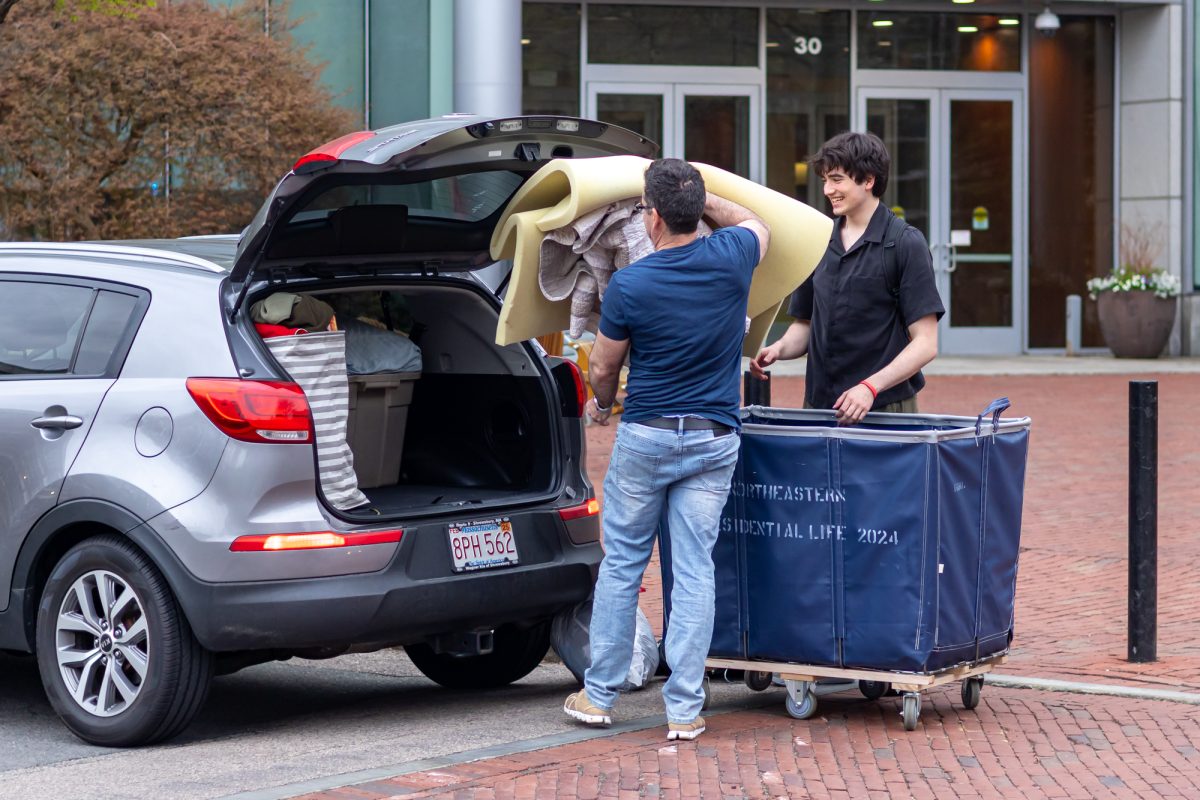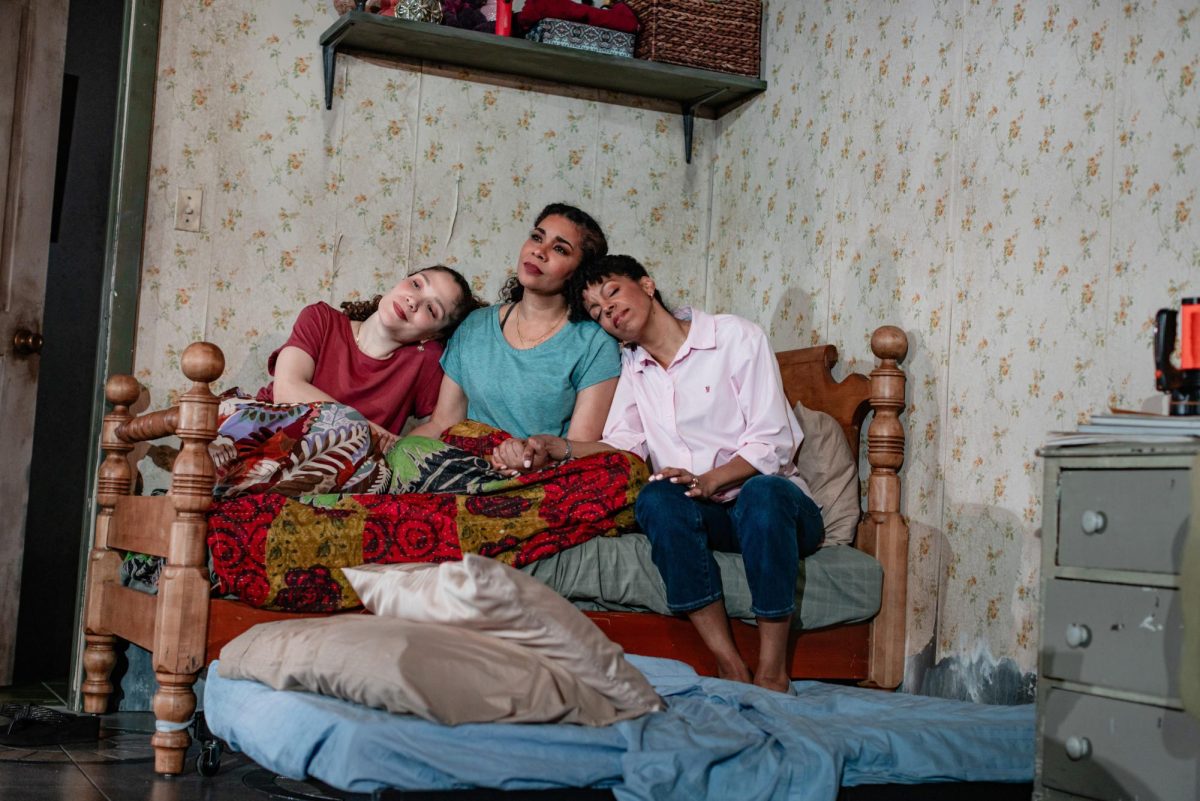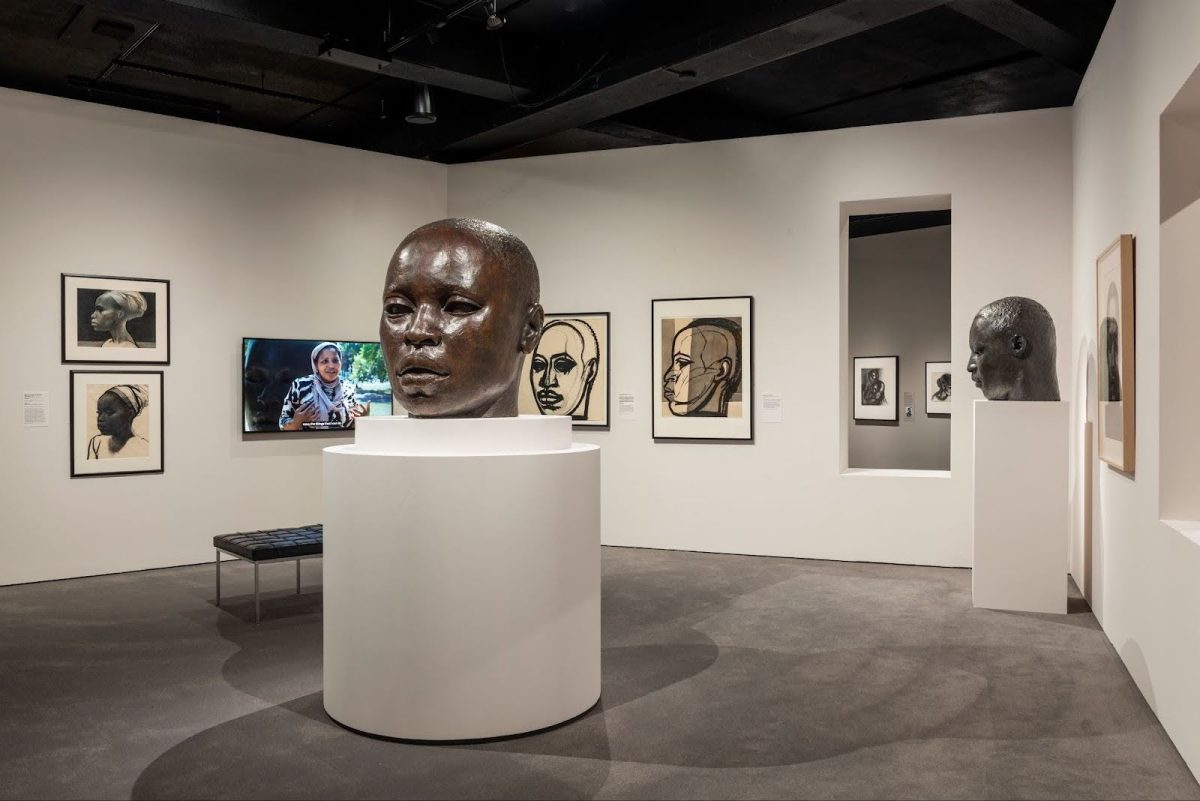By Liam Hofmeister, inside editor
In many cultures through history, there has existed an expectation for women to fall subservient to men, but this patriarchal construct is dismantled in Associate Professor of Theatre Antonio Ocampo-Guzman’s new and original translation of a classic Spanish play.
Presented by Northeastern University’s Theatre Department, Spanish playwright Federico García Lorca’s “The House of Bernarda Alba” opened on Tuesday, Oct. 20 in the Studio Theatre of the Curry Student Center. The cast of 14 undergraduate women premiered Ocampo-Guzman’s new translation of the 1936 play, with a focus on keeping the language rugged.
“Most translations are done so that people can read the play,” Ocampo-Guzman said. “In my estimation, we lose the roughness of the original language. It sounds foreign. I wanted to make something that’s more accessible to the actor and the audience on stage.”
Ocampo-Guzman also emphasized his bicultural identity. He was born in Colombia but lives in America, creating a relationship with both cultures.
“Two worlds come together for me [when translating],” Ocampo-Guzman said. “I find myself deeply connected through the way Lorca writes and his experience as someone who is bilingual.”
Though the translation may be fresh, the plot remains true to the 1936 Spanish version.
After the death of her second husband, Bernarda Alba, the matriarch of a Spanish family, forces her five daughters to live according to the social expectations of 1930s women strictly. One of the daughter’s dowries is prepared to be paid for marriage, though, leading to animosity and confusion about their confinement to their home and their right to love.

“I think the line goes ‘Needle and thread for females, whips and mules for men,’” Barbara Edmonds, the actor playing Bernarda Alba and a third-year theatre major, said. “That’s pretty blatantly sexist, but I thought about it, and people have said things like that to me before. We’ve all had that story.”
These stories of sexism are the underlying struggle for the daughters of Bernarda Alba. According to Non Kuramoto, the actor playing the grandmother Maria Josefa, and a sophomore theatre major, ignoring frustrations caused by gender roles brings the plot to a boil.
“A big thing about the show is what happens when problems aren’t addressed,” Kuramoto said. “Some people say that sexism isn’t real anymore or that racism doesn’t exist anymore, but they still need to be addressed, even on this campus. It’s important to have that dialogue.”
This dialogue is continued in the ReActs talk-back sessions, which follow select performances. Led by language lecturer Barbara Corbett on Oct. 21 and academic specialist in languages Tania Muiño-Loureiro on Oct. 28, audience members and actors can share their thoughts on the show in regard to topics such as the translation or the feminist themes.
Upon walking into the theatre, the audience may be struck by the set. The family’s house is built into the audience seating. The stairs that ascend the house are the same stairs that viewers will use to find their seats.
“There is no distance from the audience and us,” said Kira Topalian, a sophomore international affairs major playing Martirio, one of the sisters. “We do a lot of the play on the stairs. We also have the audience on the stage. There are times when we direct our lines at the audience. It doesn’t allow you to be a passive observer. You have to be engaged in what’s going on.”
Many of the actors said that Ocampo-Guzman’s rehearsal process was unconventional.
“A lot of rehearsals in the first couple of weeks we would spend in discussion and ask each other ‘What do you think about this [issue]?’” said Edmonds.
In other rehearsals, Ocampo-Guzman used techniques to get the actors to further internalize the script, such as rehearsing a different character or holding a practice run entirely in the dark.
“I have a particular view of theatre,” Ocampo-Guzman said. “It has to be compelling for the actors and the audience. We don’t sit at a table and read. We discover the play in different ways on our feet.”
Photo courtesy Grant Terzakis, Northeastern Theatre Department


